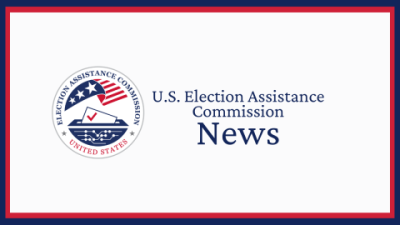
For Immediate Release
December 9, 2021
New materials will further assist election officials in implementing requirements of Section 203 of the Voting Rights Act.
WASHINGTON, DC – Yesterday, the U.S. Census Bureau announced the revised list of jurisdictions covered by Section 203 of the Voting Rights Act. In response, the U.S. Election Assistance Commission (EAC) released a Language Access Program Checklist to assist election officials in enabling members of applicable language minority groups to participate effectively in the electoral process. The checklist is being released in conjunction with 19 translations of the EAC’s recently updated Glossary of Election Terminology. This announcement highlights the EAC’s continued commitment to improving access to translated election materials for election officials and voters, and follows the previously announced translations of the National Mail Voter Registration Form into three Native American Languages, and the addition of Amharic, Polish, and Somali translations.
The EAC’s Language Access Program Checklist was created to ensure proper implementation of the requirements of Section 203 of the Voting Rights Act, which requires jurisdictions to provide language access for communities that meet certain criteria. With this announcement, 331 jurisdictions and three states in the U.S. are covered by Section 203, with requirements applying to primary and general elections, as well as special elections including bond, referenda, municipality, and school district elections.
The Language Access Program Checklist includes information on implementation timelines, budget considerations, community outreach and engagement, requirements for written materials, poll worker recruitment and training, general best practices for election officials, and other language access resources from the EAC. EAC Chairman Donald Palmer will be sharing additional information on this resource in an upcoming video available on the EAC’s YouTube channel.
The Glossary of Election Terminology contains about 1,300 terms and phrases used in the administration of elections in the U.S. The establishment of this uniform glossary helps to ensure consistency when communicating with the public about elections and voting. Before this release, the glossary was available in six languages. Translations now include:
- Amharic
- Arabic
- Apache
- Bengali
- Chinese
- French
- Haitian Creole
- Hindi
- Japanese
- Khmer
- Korean
- Navajo
- Polish
- Portuguese
- Russian
- Somali
- Spanish
- Tagalog
- Vietnamese
“There are millions of American voters who have limited proficiency in English or speak another language at home. It is imperative that election officials have the resources they need to serve these populations whether their jurisdiction is newly covered by Section 203 or continues to be covered,” the EAC Commissioners said in a joint statement. “These new materials from the EAC will assist in this process and we will continue to listen to election officials to better understand their needs in serving these communities.”
The EAC plans to build on resources like the Language Access Program Checklist and translations to the Glossary of Election Terminology and will continue to identify ways to assist election officials in serving language minority populations within their jurisdictions.
For more information about the EAC’s language access resources and other materials to assist voters for whom English is a second language and the election officials who serve them, please visit https://www.eac.gov/election-officials/language-access.
###
The U.S. Election Assistance Commission (EAC) was established by the Help America Vote Act of 2002 (HAVA). It is an independent, bipartisan commission charged with ensuring secure, accurate, and accessible elections by developing guidance to meet HAVA requirements, adopting voluntary voting system guidelines, and serving as a national clearinghouse of information on election administration. The EAC also accredits testing laboratories and certifies voting systems and administers the use of HAVA funds. For more information, visit www.eac.gov.
Contact: Kristen Muthig
Phone: 202-897-9285
Email: [email protected]

